Huttig High School serves 106 students in grades 7-12.
The student:teacher ratio of 9:1 was lower than the Arkansas state level of 13:1.
Minority enrollment was 64% of the student body (majority Black), which was higher than the Arkansas state average of 42% (majority Black).
School Overview
Grades Offered
Grades 7-12
Total Students
106 students
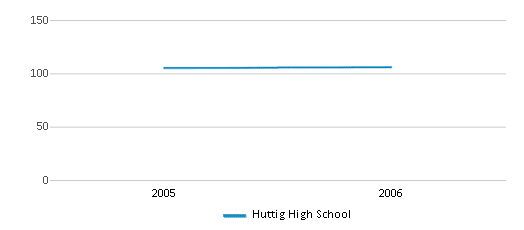
Total Classroom Teachers
12 teachers
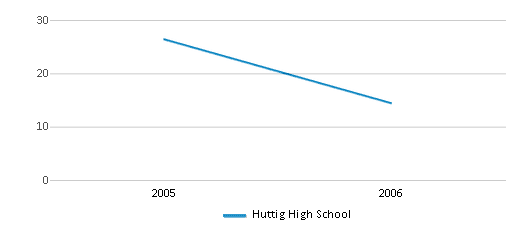
Students by Grade
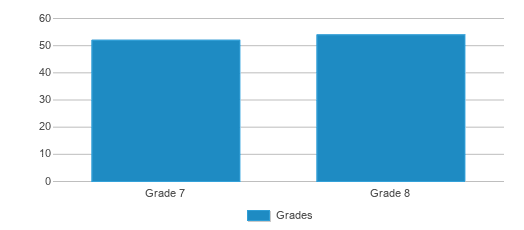
School Rankings
Student : Teacher Ratio
9:1
13:1
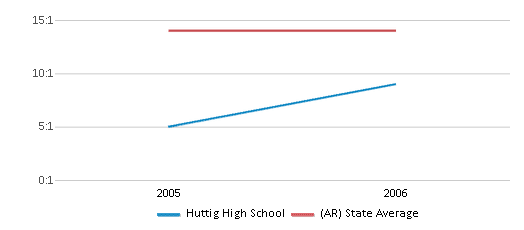
American Indian
n/a
n/a
Asian
n/a
2%
Hispanic
7%
15%
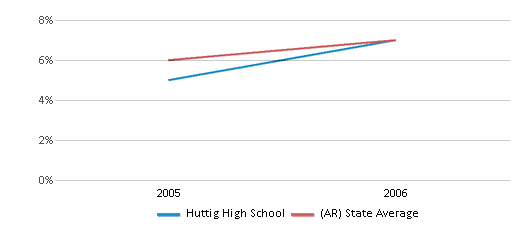
Black
57%
19%
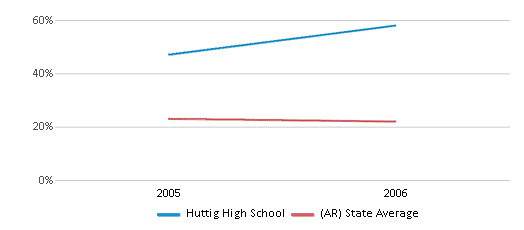
White
36%
58%
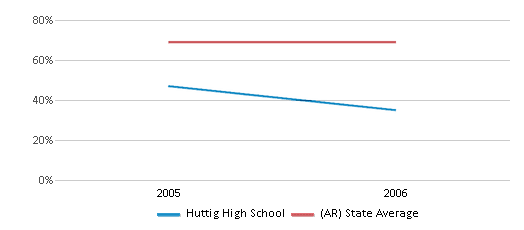
Hawaiian
n/a
1%
Two or more races
n/a
5%
All Ethnic Groups
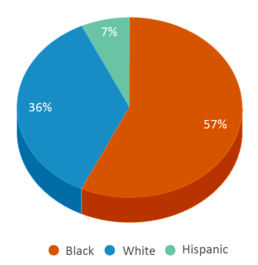
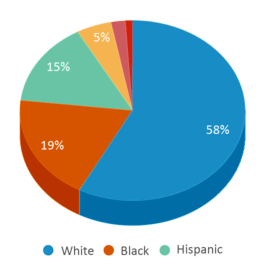
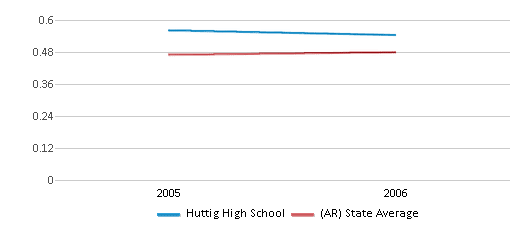
Eligible for Free Lunch
62%
56%
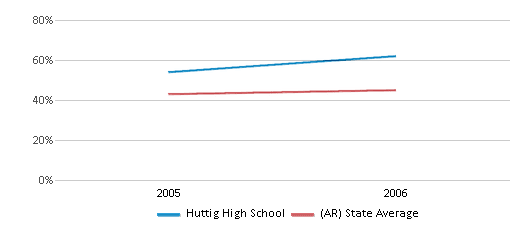
Eligible for Reduced Lunch
13%
10%
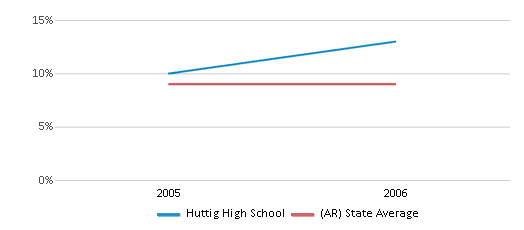
School Statewide Testing
School District Name
Source: National Center for Education Statistics (NCES), AR Dept. of Education
Frequently Asked Questions
How many students attend Huttig High School?
106 students attend Huttig High School.
What is the racial composition of the student body?
57% of Huttig High School students are Black, 36% of students are White, and 7% of students are Hispanic.
What is the student:teacher ratio of Huttig High School?
Huttig High School has a student ration of 9:1, which is lower than the Arkansas state average of 13:1.
What grades does Huttig High School offer ?
Huttig High School offers enrollment in grades 7-12
What school district is Huttig High School part of?
Huttig High School is part of Strong-Huttig School District.
Recent Articles

What Is A Charter School?
Explore the world of charter schools in this comprehensive guide. Learn about their history, how they operate, and the pros and cons of this educational innovation. Discover key facts about charter schools, including admission policies, demographics, and funding, as well as what to look for when considering a charter school for your child.

10 Reasons Why High School Sports Benefit Students
Discover the 10 compelling reasons why high school sports are beneficial for students. This comprehensive article explores how athletics enhance academic performance, foster personal growth, and develop crucial life skills. From improved fitness and time management to leadership development and community representation, learn why participating in high school sports can be a game-changer for students' overall success and well-being.

February 05, 2025
Understanding the U.S. Department of Education: Structure, Impact, and EvolutionWe explore how the Department of Education shapes American education, from its cabinet-level leadership to its impact on millions of students, written for general audiences seeking clarity on this vital institution.





